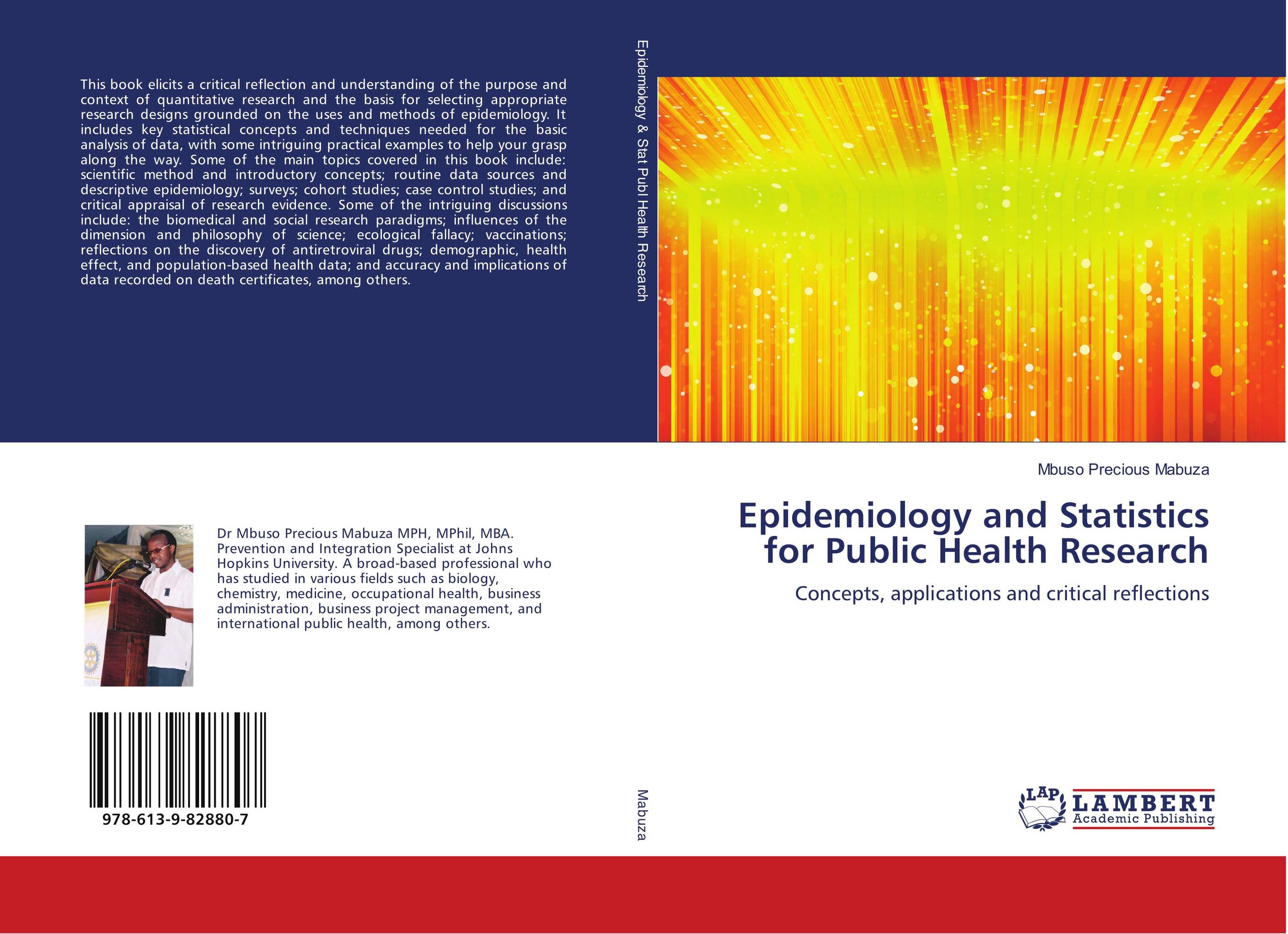| Поиск по каталогу |
|
(строгое соответствие)
|
- Профессиональная
- Научно-популярная
- Художественная
- Публицистика
- Детская
- Искусство
- Хобби, семья, дом
- Спорт
- Путеводители
- Блокноты, тетради, открытки
Epidemiology and Statistics for Public Health Research. Concepts, applications and critical reflections

В наличии
| Местонахождение: Алматы | Состояние экземпляра: новый |

Бумажная
версия
версия
Автор: Mbuso Precious Mabuza
ISBN: 9786139828807
Год издания: 2018
Формат книги: 60×90/16 (145×215 мм)
Количество страниц: 116
Издательство: LAP LAMBERT Academic Publishing
Цена: 30038 тг
Положить в корзину
| Способы доставки в город Алматы * комплектация (срок до отгрузки) не более 2 рабочих дней |
| Самовывоз из города Алматы (пункты самовывоза партнёра CDEK) |
| Курьерская доставка CDEK из города Москва |
| Доставка Почтой России из города Москва |
Аннотация: This book elicits a critical reflection and understanding of the purpose and context of quantitative research and the basis for selecting appropriate research designs grounded on the uses and methods of epidemiology. It includes key statistical concepts and techniques needed for the basic analysis of data, with some intriguing practical examples to help your grasp along the way. Some of the main topics covered in this book include: scientific method and introductory concepts; routine data sources and descriptive epidemiology; surveys; cohort studies; case control studies; and critical appraisal of research evidence. Some of the intriguing discussions include: the biomedical and social research paradigms; influences of the dimension and philosophy of science; ecological fallacy; vaccinations; reflections on the discovery of antiretroviral drugs; demographic, health effect, and population-based health data; and accuracy and implications of data recorded on death certificates, among others.
Ключевые слова: Epidemiology and Statistics for Public Health Research, antiretroviral drugs, case control studies, Cohort studies, Confidence intervals, Demographic, ecological fallacy, Health effect, immunizations, Incidence, Odds ratio, Prevalence, primary prevention, Sample size, secondary prevention, Survey Design, Vaccinations, Biomedical research paradigm, Concepts of prevention. Routine data sources, Descriptive epidemiology, population-based data, Methods of sampling, Sampling error, Critical appraisal of research evidence, exposure and outcomes, tertiary prevention, death certificate data



